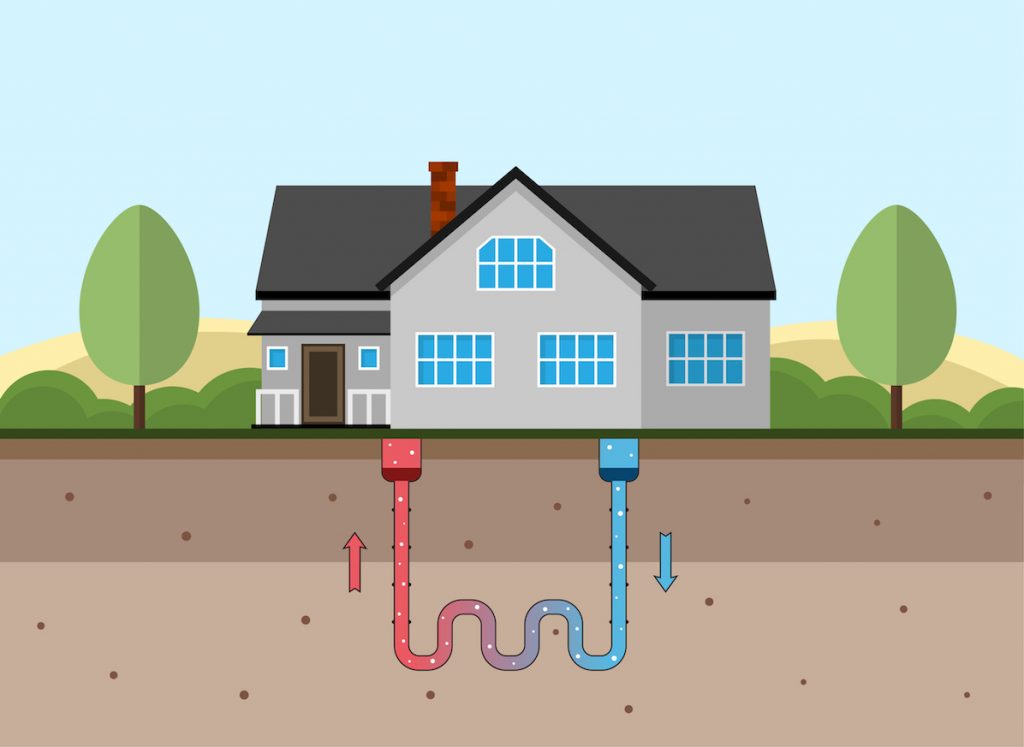From heat pumps to alternative water heaters, new technologies are reducing our dependence on fossil fuels by making building systems more efficient.
Keep your home cozy while lowering your footprint and your utility bills.
Heat pumps
Unlike traditional furnaces that generate hot air, heat pumps move it. There are different types of heat pumps: air-to-air, geothermal, and water. They collect heat from the air, water, or ground outside your home and concentrate it for use inside. New Jersey’s climate is suitable for heat pumps and can condition your home at one-fourth of the cost of conventional heating or cooling appliances.
If you have one room or area needing heating or cooling or your home lacks ducts, a mini-split heat pump is ideal and energy-efficient. Mini-split systems avoid the energy losses associated with the ductwork of central forced air systems.
For more on heat pumps and mini-splits, review the U.S. Department of Energy’s webpage.
Did you know? In our region, instant rebates are available for certain heating and cooling equipment through the PSE&G.
Tankless water heaters
By heating water just when it is needed, tankless water heaters provide hot water efficiently. These appliances heat 2-5 gallons of water per minute as needed, all while saving money on energy costs by not heating and reheating the same tank of water.
Depending on the size of your household and your water usage, multiple systems may be required, but substantial savings on your utility bill are possible. Learn more at this U.S. Department of Energy webpage.
Did you know? In our region, PSE&G offers instant rebates for certain water heaters.

Geothermal heat pumps
Geothermal systems utilize naturally-occurring temperatures within the Earth. Just like a cave, the Earth’s subsurface temperature remains at a constant temperature between 50-60 degrees throughout the year. A geothermal system consists of a pump and a closed loop of pipes containing an antifreeze/water mixture buried underground before entering your home. The pump transfers heat from the earth into your home in the cold months and transfers the heat from your home to the earth in the hot months.
Visit the U.S. Department of Energy’s webpage for more information on geothermal heat pumps.
Did you know?
- Princeton University has geothermal wells on their campus
- Federal tax credits are available for geothermal heat pumps.
Solar water heaters
Why pay for gas or electricity to heat your water when you can use the sun’s energy directly? Solar water heating systems utilize a solar collector installed on a roof or other spot with a sunny exposure to generate heat. This generated heat is passed to a ‘transfer fluid’ — typically antifreeze — in small pipes in the collector, that then moves into the house and through a heat exchanger to warm water in a storage tank.
Since the sun’s energy can wane, a tankless water heater or other back-up water heater is recommended with this approach.
Learn more about solar water heaters at this U.S. Department of Energy webpage.
Did you know? Federal tax credits are available for solar water heaters.




